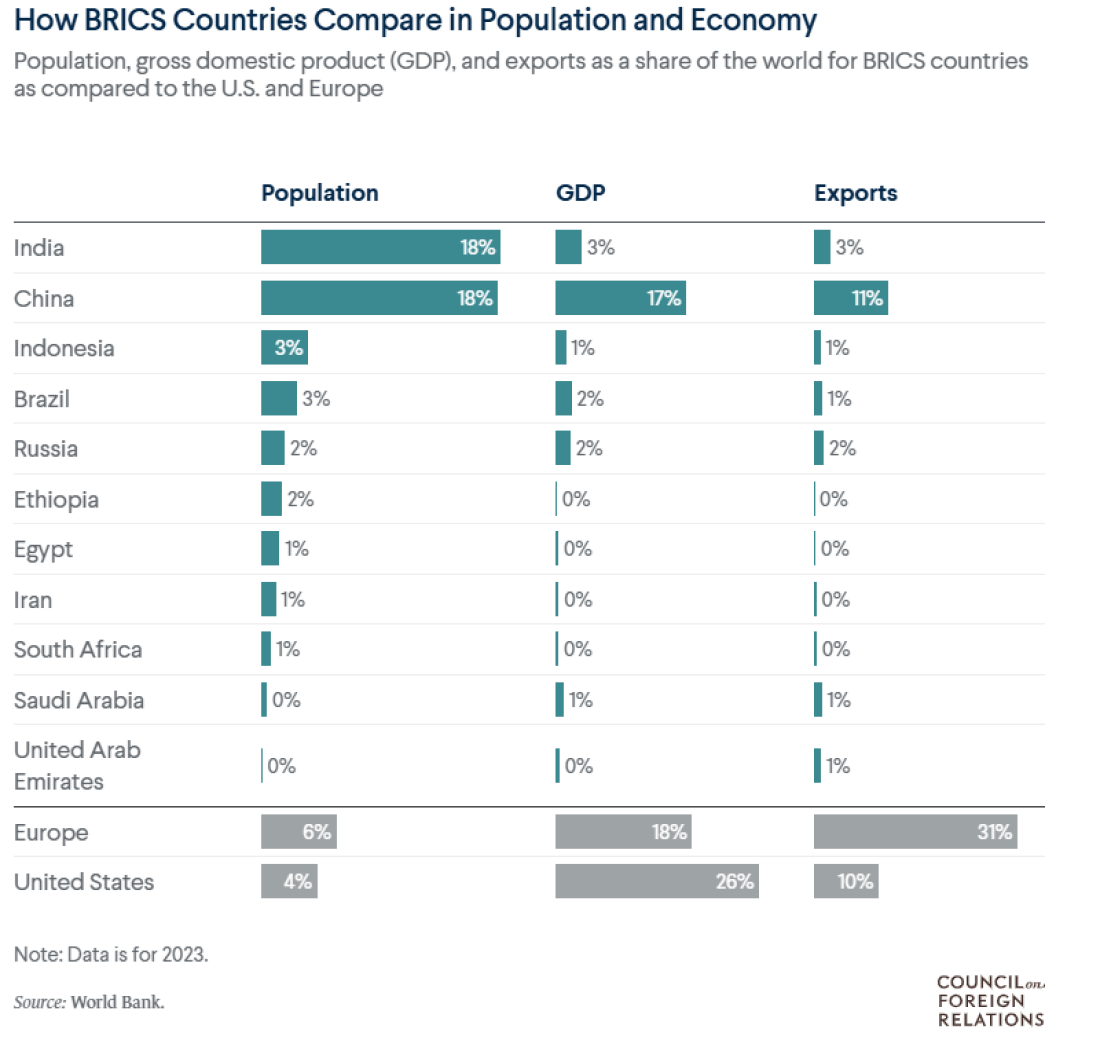Former UK ambassador to U.S. Peter Mandelson taken into custody
The former British ambassador to the U.S. Peter Mandelson has been arrested by police in London on suspicion of misconduct in public office....
BRICS is no longer just a club of emerging economies, it’s evolving into a global power bloc. With more countries joining and dozens lining up, BRICS+ is challenging Western dominance and reshaping how the world does business, diplomacy, and development.
What is BRICS+?
Once a loose alliance of five big emerging economies, BRICS is quickly becoming a magnet for the Global South. BRICS+ refers to the group’s expanded format, one that now includes not just Brazil, Russia, India, China, and South Africa, but also new full members like Egypt, Ethiopia, Iran, the UAE, and Indonesia. More than 40 other countries are queuing up to join as either full or “partner” members.
This expansion is more than symbolic. Together, BRICS+ countries account for over 40% of the world’s population and about a third of the global economy, surpassing even the G7 on purchasing power terms. They’re pushing to reshape a world order long dominated by the West.

Why now?
Many developing nations feel sidelined by institutions such as the IMF, World Bank, and UN Security Council, bodies they say are controlled by Western powers. BRICS+ promises a platform that better reflects their interests. And in the wake of COVID-19 and global economic shocks, dissatisfaction with the status quo has grown deeper.
“This system was created by rich countries to benefit rich countries,” said UN Secretary-General António Guterres, echoing a sentiment shared across the Global South.
What does BRICS+ offer?
At the core is the New Development Bank, an alternative lender to the World Bank, which has already financed over 100 projects. There's also growing momentum to trade in local currencies and reduce dependence on the U.S. dollar, though a shared BRICS currency remains far off.
By building its own financial architecture and setting its own diplomatic agenda, BRICS+ aims to give its members more independence, especially from Western sanctions.
But it’s not all smooth sailing
BRICS+ is not a formal alliance. It lacks a charter, secretariat, or unified strategy. Internal rivalries, such as between China and India, or Egypt and Ethiopia, often stall consensus. And while Russia and China champion an anti-West stance, others like Brazil and India seek a more balanced approach.
Former Goldman Sachs economist Jim O’Neill, who coined the original “BRIC” term, recently called the group “symbolic at best,” warning that internal divisions could undermine its ambitions.
So why are countries still eager to join?
For many, BRICS+ offers hope, a chance to shape global rules rather than follow them. It appeals especially to countries frustrated with double standards on trade, climate finance, and development.
“BRICS is becoming a voice for countries that never had a seat at the table,” said a senior official from Indonesia.
And as BRICS+ continues to grow, the big question remains: can it turn its diversity into strength, or will its differences hold it back?
A seven-month-old Japanese macaque has drawn international attention after forming an unusual bond with a stuffed orangutan toy after being rejected by its mother.
Divers have recovered the bodies of seven Chinese tourists and a Russian driver after their minibus broke through the ice of on Lake Baikal in Russia, authorities said.
Iran announced on Saturday (21 February) that it has designated the naval and air forces of European Union member states as “terrorist entities” in a reciprocal move after the EU blacklisted the Islamic Revolutionary Guard Corps (IRGC).
Pakistan said it carried out cross-border strikes on militant targets inside Afghanistan after blaming a series of recent suicide bombings, including attacks during the holy month of Ramadan, on fighters it said were operating from Afghan territory.
Italy said a fond farewell to the Winter Olympics on Sunday with an open-air ceremony in the ancient Verona Arena that celebrated art and sporting achievement at a Games lauded as a model for how to stage such events.
The former British ambassador to the U.S. Peter Mandelson has been arrested by police in London on suspicion of misconduct in public office.
At least 25 members of Mexico's National Guard have died during a wave of violence in the state of Jalisco after the killing of a drug lord, the country's security minister has said.
The European Parliament on Monday (23 February) postponed a vote on the EU’s trade deal with the U.S. after President Donald Trump imposed a blanket 15% import duty.
The U.S. Supreme Court has overturned key elements of President Donald Trump’s global tariff policy, creating uncertainty ahead of his March meeting with China’s Xi Jinping. The ruling raises fresh questions about the future of U.S.-China trade relations and the stability of the global economy.
Australian Prime Minister Anthony Albanese has written to British Prime Minister Keir Starmer to say he would back any UK government plan to remove Andrew Mountbatten-Windsor from the line of succession, a statement shared by Starmer's office said.
You can download the AnewZ application from Play Store and the App Store.

What is your opinion on this topic?
Leave the first comment